Osterbrock Senior Fellows
The Osterbrock Senior Fellows are UCSC Astronomy faculty members who oversee the program, advise and provide additional close-at-hand mentoring advice for Fellows.
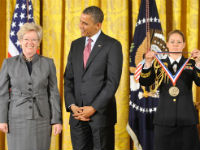 Sandra Faber is University Professor Emerita at the University of California, Santa Cruz, and a staff member of the University of California Observatories. Her research interests are cosmology, galaxy formation, and astronomical instrumentation. With collaborators, she discovered the Faber-Jackson scaling law for galaxies, uncovered black holes at the centers of galaxies, and provided the first detailed theory of galaxy formation based on cold dark matter. Honors include the Heinemann Prize and Russell Prizes from the American Astronomical Society, the Bower Award and Prize for Achievement in Science from the Franklin Institute in Philadelphia, the Bruce Medal of the Astronomical Society of the Pacific, the Gruber Prize in Cosmology, and the Gold Medal of the Royal Astronomical Socity. She received the National Medal of Science from President Obama in February 2013.
Sandra Faber is University Professor Emerita at the University of California, Santa Cruz, and a staff member of the University of California Observatories. Her research interests are cosmology, galaxy formation, and astronomical instrumentation. With collaborators, she discovered the Faber-Jackson scaling law for galaxies, uncovered black holes at the centers of galaxies, and provided the first detailed theory of galaxy formation based on cold dark matter. Honors include the Heinemann Prize and Russell Prizes from the American Astronomical Society, the Bower Award and Prize for Achievement in Science from the Franklin Institute in Philadelphia, the Bruce Medal of the Astronomical Society of the Pacific, the Gruber Prize in Cosmology, and the Gold Medal of the Royal Astronomical Socity. She received the National Medal of Science from President Obama in February 2013.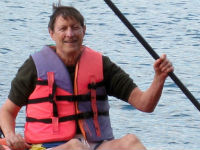 Robert Williams is Astronomer Emeritus at the Space Telescope Science Institute (STScI) in Baltimore, MD, having served as Director of the Institute from 1993-1998. The Institute, together with Goddard Space Flight Center, operates the Hubble Space Telescope for NASA. Before assuming his present position, Williams spent eight years in Chile as Director of the Cerro Tololo Interamerican Observatory, the national observatory of the U.S. in the southern hemisphere. Prior to that, he was Professor of Astronomy at the University of Arizona in Tucson for 18 years.
Robert Williams is Astronomer Emeritus at the Space Telescope Science Institute (STScI) in Baltimore, MD, having served as Director of the Institute from 1993-1998. The Institute, together with Goddard Space Flight Center, operates the Hubble Space Telescope for NASA. Before assuming his present position, Williams spent eight years in Chile as Director of the Cerro Tololo Interamerican Observatory, the national observatory of the U.S. in the southern hemisphere. Prior to that, he was Professor of Astronomy at the University of Arizona in Tucson for 18 years.
Williams' research specialties are nebulae, novae, and emission-linespectroscopy and analysis. He is a strong advocate for science education and outreach and has lectured around the world on recent discoveries from the Hubble Telescope and other forefront facilities on the ground and in space.
Williams received his undergraduate degree from the University of California, Berkely, in 1962, and a PhD in astronomy from the University of Wisconsin in 1965, where he was one of Don Osterbrock's first Ph.D. students. He was Senior Fulbright Professor at University London from 1972-3 and received an Alexander von Humboldt Award from the German government in 1991. In 1998 he was awarded the Beatrice Tinsely Prize of the American Astronomical Society for his leadership of the Hubble Deep Field, a ground-breaking image with Hubble that revealed the early Universe in full breath-taking detail for the first time. For this project he was also awarded the NASA Distinguished Service Public Service Medal in 1999.
Williams is an elected member of the American Academy of Arts and Sciences and is a past president of the International Astronmical Union, the world-wide organization serving professionsl astronomers and promoting international astronomy. He is preesntly Adjunct Professor at Johns Hopkins University in Baltimore, where he resides with his wife Elaine, a pediatric psychologist who specializes in the diagnosis and treatment of autism disorders. Together, they are co-founders of an organization in Baltimore that places adults with autism in the workplace.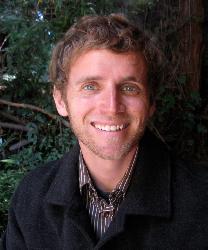 Kevin Bundy is an Assistant Professor in the Department of Astronomy and Astrophysics at the University of California Santa Cruz. His work utilizes new "Big Data" survey programs combined with observations from premier telescopes to probe the physical processes responsible for the growth and evolution of galaxies over the last 10 billion years. He is the PI of the Thirty Meter Telescope's Wide-field Optical Spectrograph. Before moving to Santa Cruz, he was an assistant professor at the Kavli IPMU and previous to that, Hubble Fellow at UC Berkeley and a Reinhardt Fellow at the U. of Toronto. He completed his Ph.D. at Caltech in 2006.
Kevin Bundy is an Assistant Professor in the Department of Astronomy and Astrophysics at the University of California Santa Cruz. His work utilizes new "Big Data" survey programs combined with observations from premier telescopes to probe the physical processes responsible for the growth and evolution of galaxies over the last 10 billion years. He is the PI of the Thirty Meter Telescope's Wide-field Optical Spectrograph. Before moving to Santa Cruz, he was an assistant professor at the Kavli IPMU and previous to that, Hubble Fellow at UC Berkeley and a Reinhardt Fellow at the U. of Toronto. He completed his Ph.D. at Caltech in 2006.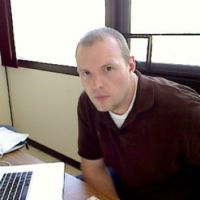 Brant Robertson is a Professor in the Department of Astronomy and Astrophysics at the University of California, Santa Cruz. His research interests include the theory of galaxy formation, dark matter, hydrodynamics, and numerical simulation methodologies. He previously held a Hubble Fellowship at the California Institute of Technology and a Spitzer and Institute Fellowship at Kavli Institute for Cosmological Physics and Enrico Fermi Institute at the University of Chicago. His scientific simulations of galaxy formation have been integrated into popular planetaria shows and viewed by millions on the television shows NOVA and COSMOS.
Brant Robertson is a Professor in the Department of Astronomy and Astrophysics at the University of California, Santa Cruz. His research interests include the theory of galaxy formation, dark matter, hydrodynamics, and numerical simulation methodologies. He previously held a Hubble Fellowship at the California Institute of Technology and a Spitzer and Institute Fellowship at Kavli Institute for Cosmological Physics and Enrico Fermi Institute at the University of Chicago. His scientific simulations of galaxy formation have been integrated into popular planetaria shows and viewed by millions on the television shows NOVA and COSMOS.
Sandra Faber (Program Director)
Robert Williams
Kevin Bundy
Brant Robertson
Emeritus
Andy Skemer
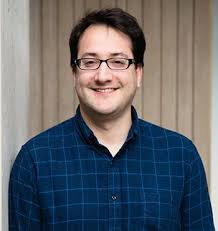 Andy Skemer is an Associate Professor in the Department of Astronomy and Astrophysics at the University of California, Santa Cruz, where he uses the largest telescopes in the world to image and characterize extrasolar planets. Andy received his Ph.D from the University of Arizona in 2011 and was also a NASA Hubble Postdoctoral Fellow at the University of Arizona. Andy's images of extrasolar planetary systems have been featured by Sky & Telescope, Science Daily, and NPR.
Andy Skemer is an Associate Professor in the Department of Astronomy and Astrophysics at the University of California, Santa Cruz, where he uses the largest telescopes in the world to image and characterize extrasolar planets. Andy received his Ph.D from the University of Arizona in 2011 and was also a NASA Hubble Postdoctoral Fellow at the University of Arizona. Andy's images of extrasolar planetary systems have been featured by Sky & Telescope, Science Daily, and NPR.
